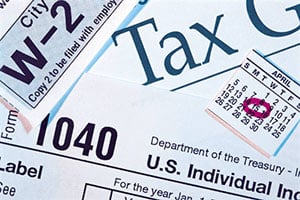We especially want to take this opportunity to thank you for being a loyal subscriber to our newsletter this year, and we hope to provide it to you as a free information source for you in 2016 and for the years to come. We are pleased to warmly offer this year-end issue to you in the hope that it will help inform and advise you and those who you care for during this Holiday Season.

Best wishes to you and yours during the holiday season from everyone at our firm
Each post title listed below contains the link to each article so that you can easily click them. The direct link follows the title of each post so that you can copy and paste them to share with friends and family individually if you like, or simply send a link to this page so that they can see the breadth of information we cover throughout the year. The articles are listed in descending order of popularity, with the title of the page followed by the direct link.
Bankruptcy FAQ — Answers to Frequently Asked Questions About Filing Bankruptcy in Washington State
https://washingtonbankruptcy.com/bankruptcy-faq/
Chapter 7, Chapter 11, & Chapter 13 Bankruptcy — An Explanation of Chapter 7, Chapter 11, & Chapter 13 Bankruptcy
https://washingtonbankruptcy.com/bankruptcy-chapter/
Start Fresh: Begin Building Your Financial Future Now! – This page provides an overview of the bankruptcy process, and how to get your case started as quickly as possible with our firm
https://washingtonbankruptcy.com/bankruptcy-basics/
Reviews — Our Clients Review the James H MaGee Law Firm on various sites around the Internet
https://washingtonbankruptcy.com/reviews/
You Can Add Points to Your Credit Score by Beating the “Charge off Date” Scam
https://washingtonbankruptcy.com/you-can-add-points-to-your-credit-score-by-beating-the-charge-off-date-scam/
I Didn’t List All of My Creditors in My Chapter 7 Bankruptcy Filing. What Will Happen to My Case?
https://washingtonbankruptcy.com/i-didnt-list-all-of-my-creditors-in-my-chapter-7-bankruptcy-filing-what-will-happen-to-my-case/
What Happens if My Chapter 13 Bankruptcy Plan is Dismissed Because I Can’t Afford the Payments?
https://washingtonbankruptcy.com/what-happens-if-my-chapter-13-bankruptcy-plan-is-dismissed-because-i-cant-afford-the-payments/
Debt Consolidation Scams – This page provides useful consumer information about “Credit Repair” & “Debt Consolidation” swindles that seem to come and go in different forms every year
https://washingtonbankruptcy.com/debt-consolidation-scams/
What Difference can my Choice of Attorney Make? – This article answers the question, “Why choose the Law Offices of James H. MaGee, Washington bankruptcy attorney?”
https://washingtonbankruptcy.com/cheap-attorneys/
Do You Know These Eight Used Car Buying Scams?
https://washingtonbankruptcy.com/do-you-know-these-eight-used-car-buying-scams/
There is Life After Bankruptcy – We published a series of articles to help our clients understand key questions and concerns, including “What has happened to people who file bankruptcy?”
https://washingtonbankruptcy.com/there-is-life-after-bankruptcy/
How to Avoid the Loss of Inherited 401k and IRA Funds to Creditors in Your Bankruptcy Case
https://washingtonbankruptcy.com/avoid-the-loss-of-inherited-401k-and-ira-funds-to-creditors-in-your-bankruptcy-case/
What is the Bankruptcy Process Really Like? – Another article in our series about life after bankruptcy that provides a detailed walk through of a typical personal bankruptcy case
https://washingtonbankruptcy.com/what-is-the-bankruptcy-process-really-like/
How Do Bankruptcy Exemptions Function to Protect Some of My Property from Sale by A Bankruptcy Trustee?
https://washingtonbankruptcy.com/how-do-bankruptcy-exemptions-function-to-protect-some-of-my-property-from-sale/
Student Loan Debt Archives – One of the areas that clients continually ask about is the ability to discharge student loan debt in bankruptcy. You’ve no doubt heard discussions of student loan financing in the Presidential primary coverage, and some discussion from a federal legislative point of view. This series of articles will equip you with the best information available about the state of student loan debt and federal bankruptcy to date.
https://washingtonbankruptcy.com/category/student-loan-debt-2/
If you find any of this confusing, please make an appointment to come in and discuss your situation. We are here to help you through your bankruptcy—before, during, and after the filing and completion of your case.
We’re With You. All the Way Back.
I have compiled a record of service to my clients that is based upon my determination to be of help to them long after their case is over. Most of the articles on my site and the newsletters I’ve authored contain financial planning advice, including those linked above. The newsletter archive is posted on my site in case you would like to review previous editions at a later time. I am both proud and humbled by the comments my clients say in person and the reviews they’ve freely left about my staff and I on the web. I am committed to helping my clients resume their lives on a solid footing—all the way back after bankruptcy.
The newsletters and articles I write are free, and will remain so. You can rely on a regular series of updates throughout the year. I am motivated to write new articles that directly address questions asked by clients, to help them clarify questions they have, and relieve some of the worries that they feel. Day by day, I listen to my clients’ concerns and questions, and author articles with what I learn from these conversations.
Introducing Our Annual Financial Review Program
One of the services that we recently introduced is an annual financial plan review for clients who have completed their bankruptcy case. The program is an opportunity for you to schedule an in-person appointment to go over your personal financial circumstances, post-bankruptcy. We want to help you avoid pitfalls, and to make your life after bankruptcy the best it can be.
Make your appointment by calling us at (253) 383-1001, or by contacting us through our website, and keep the positive energy and momentum going in your life after bankruptcy.






